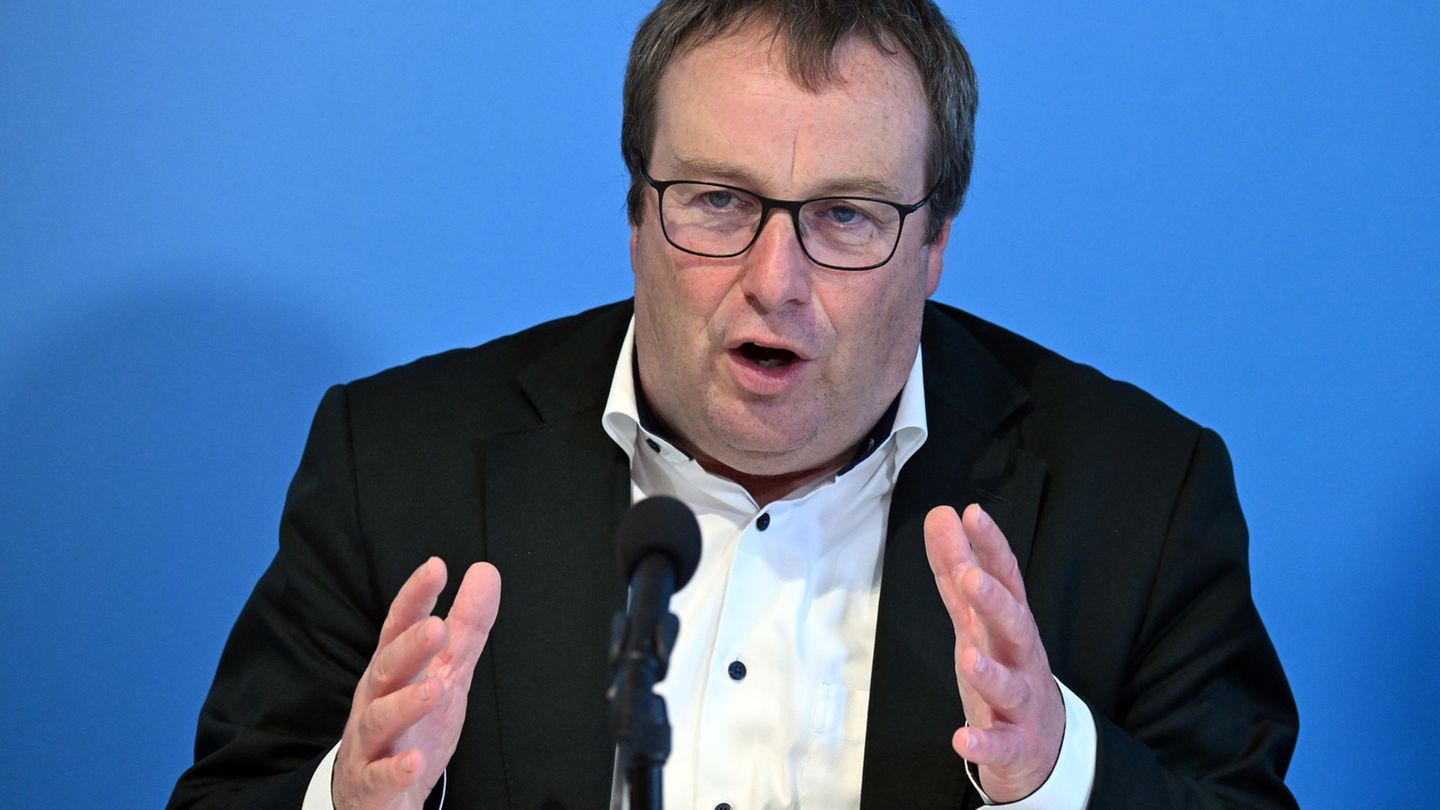No bus, no subway, no tram: commuters had to find an alternative route to work in around 80 cities on Friday. The reason was the next warning strike by the Verdi union.
Empty subway stations, deserted bus stops, picket lines with fire barrels – the Verdi union paralyzed large parts of local public transport in dozens of cities with an all-day warning strike on Friday. Buses, subways and trams remained in the depots, commuters and students had to get to work or school elsewhere. It is the third industrial dispute in Germany within seven days that affects parts of the transport sector.
The strike on Friday was supported by the Fridays for Future (FFF) movement. Young activists mingled with the workers at numerous picket lines.
“There was a very high level of participation in the strike and we hope that the employers understood this signal,” said Verdi deputy federal chairwoman Christine Behle. “We were very pleased that so many young people from Fridays for Future supported us.”
High strike participation in all affected federal states
The most populous state, North Rhine-Westphalia, was hardest hit. According to Verdi, a good third of the around 90,000 employees nationwide who have been called on a warning strike work in North Rhine-Westphalia. The union also reported high strike participation in numerous other federal states. According to the union, a total of more than 80 cities and around 40 districts nationwide were affected. There were strikes in 15 federal states. Only Bavaria was not affected because the collective agreements there are still running.
At the largest German local transport company, Berliner Verkehrsbetriebe (BVG), the industrial dispute ended in the morning. Verdi recognizes a fundamental understanding of the concerns and concerns of the union on the employer side. In other federal states, the collective bargaining round is much more conflict-prone, said Verdi negotiator Jeremy Arndt on Friday at a picket line in Berlin.
Working conditions are the focus
The union is currently negotiating new collective agreements in 15 federal states. In most rounds, the main focus is on the working conditions for employees. Verdi is demanding, among other things, shorter working hours without financial losses, longer rest periods between individual shifts, more vacation days or more vacation pay. This is intended to relieve the burden on employees and make the job more attractive.
All transport companies are suffering from the ongoing shortage of staff. Bus drivers in particular are difficult to find. For this reason, the BVG has been operating a restricted bus schedule in Berlin for months.
Higher wages and salaries are also being negotiated in Brandenburg, Saarland, Saxony-Anhalt and Thuringia. In Bandenburg, for example, Verdi is demanding 20 percent – but at least 650 euros – more per month for employees. According to Verdi, the term of the collective agreement should be one year. A new collective agreement for the transport companies is being negotiated in Hamburg.
Support comes from Fridays for Future
For years, the climate movement Fridays for Future has been supporting the union in its collective bargaining rounds in public transport as part of the “We ride together” campaign. Numerous activists came to the picket lines on Friday morning and expressed solidarity with the employees. “Especially at a time when a lot of people have the feeling that so much is falling apart in this country, you can’t talk to each other, everyone is against each other, politics is completely divided and a crisis is coming our way every day “This alliance is the moment in which we show together: No, there is a different way,” said FFF activist Luisa Neubauer on Friday in Berlin.
“Of course we as a climate movement can fight to ensure that climate targets in transport can be met and that emissions finally fall,” emphasized Neubauer. “But in the end it won’t work if we ignore the conditions under which people work.” She referred to the federal government’s goal of doubling the number of passengers on rail and public transport by 2030. “Who is supposed to drive all this if people don’t want to accept these working conditions?” asked the activist.
Third transport strike in seven days
The warning strike nevertheless meant further traffic strain for passengers. Last weekend, the train drivers’ union GDL went on strike on Deutsche Bahn’s long-distance, regional and freight transport. On Thursday, another Verdi warning strike led to numerous flight cancellations at eleven German airports. Thousands of passengers were affected. The background is the collective bargaining for aviation security personnel. The strike continued at Hamburg Airport on Friday because Verdi also wants to win new tariffs for ground service providers there.
The next rounds of negotiations in public transport are scheduled for mid-February in North Rhine-Westphalia and Berlin. In North Rhine-Westphalia, the union wants to increase the pressure again beforehand, as the negotiator there, Peter Büddicker, said on Friday. It initially remained unclear whether there would be another warning strike in all 15 federal states.
Source: Stern




